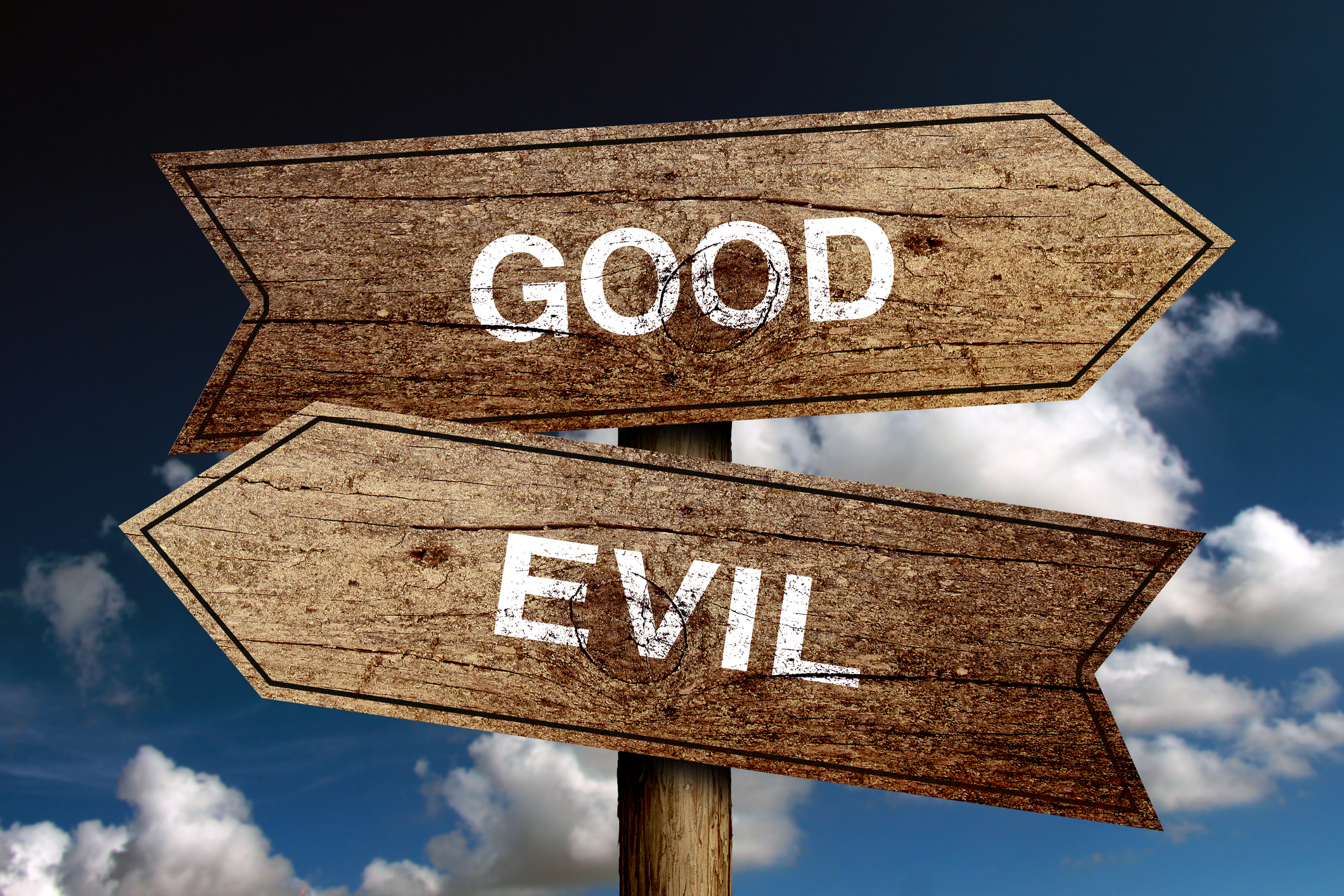Hamptons Soul: The Nature of Evil

Father Constantine Lazarakis of the Greek Orthodox Congregation, and Jewish Center of the Hamptons Rabbi Josh Franklin look into the face of evil, asking questions about necessary evils, duality and more.
Rabbi Josh Franklin
One of the crowning achievements of Charles Darwin was the work on his theory of natural selection. According to Darwin, all animals in the world compete for resources, and only the fittest survive. Darwin believed that homo sapiens followed this same trend, and that in the struggle to survive, the strongest will always win. In such an arena of survival, ruthlessness and individualism conquer kindness and selflessness. But Darwin ran into a problem with applying this model to human beings, that is, all societies value altruism. Humanity esteems virtues of kindness, empathy, generosity and humility — all vices when it comes to darwinian survival. Without moral virtues, we are just animals; and without primal instincts, we would all perish.
For millennia, Judaism has viewed the balance of being virtuous and primal in the dichotomy of our having both a moral inclination and an evil inclination. Both are not just inherent to who we are, but both are blessings of God upon us. The question is asked by Rabbi Nachman ben Shmuel as to how we can possibly call our evil inclination “good.” The answer, is that were it not for the primal inclinations within us, humanity wouldn’t build, marry, procreate and engage in business. Greed, lust and ego are potentially harmful forces, but God’s world needs them to endure. While we might call these inclinations “evil,” they are necessary evils in this world that, when tempered, drive the success of civilization. When left unchecked by our moral compass, the excess of these qualities breeds crime, fraud, war, inequity and injustice. What sets us apart from the animal kingdom is that only humans can employ a moral conscience (our good inclination) to supersede our base instincts.
We like to paint individuals — either in real life or in literature — as heroes or villains. Jewish wisdom teaches that we are neither good nor evil, but rather, that both good and evil exist within each and every one of us. When Dr. Henry Jekyll, in Robert Louis Stevenson’s The Strange Case of Dr. Jekyll and Mr. Hyde, figures out how to separate his evil inclination and his moral inclination into two separate beings, he creates a monster on the one hand, and a feeble wimp on the other. Living a purposeful and meaningful life requires that we are driven by a healthy balance between our moral and primal natures.
Father Constantine Lazarakis
Evil — the word gets thrown around a lot. Usually we reserve it for big news like the ravages of war (see our column on the conflict in Ukraine), terrorist attacks, school shootings. Those horrific events are, for sure, evil. But identifying frightening events that someone else perpetrates as evil doesn’t give us the whole picture, and doesn’t help us move the needle in terms of making the world a better place. Like all spiritual matters, to confront evil in a useful way, we have to make it personal, we have to start with ourselves.
The saints and “Church Fathers” don’t refer to evil as a thing or a concept. Instead, they talk about evil as a perversion, or a twisting of that which God intended to be good. In the case of humanity, God created us to live in communion with Him and in community with one another. He created us to receive and share love. We are our truest and best selves when we live in God’s grace and love one another. Evil then, is any force that persuades or coerces us be malicious — anything that pulls us from the path of love.
When contemplating the perplexing and heartbreaking evil troubling our world, it is essential that we not only look outward, but also look inward. We must face the reality that evil is present both in big events, and in everyday life. Small acts of evil have real impact. And small acts of love send ripples of grace through the world. Each of us has the capacity to perpetrate evil, and each of us has the capacity for love. Instead of focusing our attention and energy on the evil we see in the headlines, imagine if each of us poured our energy into cultivating goodness and love within ourselves.
Have a topic you’d like the Hamptons Soul perspective on? Email dtaylor@danspapers.com with the subject: “Hamptons Soul.”



